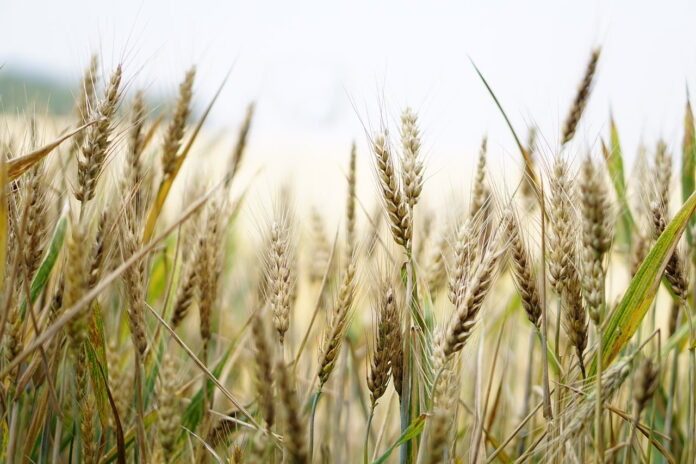Soil, often referred to as the skin of the Earth, is not just a medium for plant growth but a vibrant ecosystem teeming with life. Within this complex matrix, microscopic organisms play a pivotal role in maintaining and enhancing soil health and fertility. Understanding the interplay between these soil microbes and the environment is essential for developing sustainable farming practices that can meet the increasing food demands without compromising the health of our planet.
Understanding Soil Microbiology
Soil microbiology is the study of organisms in soil that are invisible to the naked eye. These microscopic life forms, including bacteria, fungi, protozoa, and nematodes, play a critical role in the soil ecosystem. They are responsible for a range of vital processes such as nutrient cycling, decomposition of organic matter, and the formation of soil structure. By breaking down complex organic substances into simpler compounds, these microbes make essential nutrients available to plants, promoting healthy growth and development.
The balance of microbial communities in the soil is a key indicator of soil health. A diverse microbial population can protect plants from pathogens by outcompeting them or by producing substances that inhibit their growth. Certain microbes form symbiotic relationships with plants, such as mycorrhizal fungi, which enhance the plant’s ability to absorb water and nutrients from the soil. Soil microbes also contribute to the formation of humus, a rich organic component that improves soil fertility and water retention.
Understanding soil microbiology is crucial for farmers and agricultural professionals, as it allows for the development of practices that support and enhance the natural microbial activity in the soil. This includes minimizing the use of chemicals that can disrupt microbial communities and adopting techniques like crop rotation and cover cropping, which promote a diverse and healthy soil ecosystem. By fostering the right conditions, farmers can leverage these microscopic allies to improve crop yields and soil resilience.
Enhancing Soil Health Naturally
Enhancing soil health naturally involves adopting practices that support the biological, chemical, and physical well-being of the soil. Incorporating organic matter, such as compost or green manure, into the soil is one of the most effective ways to improve its health. Organic amendments increase the organic carbon content of the soil, providing energy and nutrients for microbial communities, which in turn improve soil structure and fertility. This creates a positive feedback loop, as healthy soil supports robust plant growth, which provides more organic matter through root exudates and plant residues.
Cover cropping is another practice that can significantly benefit soil health. Cover crops protect the soil from erosion, help retain moisture, and can fix atmospheric nitrogen when leguminous plants are used. These crops also provide a habitat for beneficial insects and microorganisms, enhancing biodiversity both above and below the ground. When cover crops are terminated and incorporated into the soil, they add organic matter and stimulate microbial activity, further improving soil structure and nutrient availability.
Avoiding excessive tillage is also a natural way to maintain soil health. Tillage can disrupt soil structure, harm beneficial microbes and earthworms, and lead to erosion. No-till or reduced-tillage farming practices allow organic matter to accumulate on the soil surface, where it can be decomposed by surface-dwelling organisms. This practice not only conserves soil structure and moisture but also sequesters carbon in the soil, contributing to the mitigation of climate change. By implementing these and other natural soil health-enhancing strategies, farmers can sustainably increase the productivity and resilience of their farms.
Microbes: Key to Sustainable Farming
Microbes are the unsung heroes of sustainable farming, acting as the foundation upon which the health of agricultural systems is built. In sustainable agricultural practices, farmers rely on the natural processes mediated by soil microbes to minimize the need for chemical fertilizers and pesticides. The use of microbial inoculants, such as biofertilizers and biopesticides, is an example of harnessing the power of microbes to promote plant growth and protect against pests and diseases. These products often contain strains of beneficial bacteria or fungi that can colonize plant roots and provide a range of benefits, including enhanced nutrient uptake and resistance to stressors.
Sustainable farming also emphasizes the importance of crop diversity and rotation, which can lead to a more resilient and dynamic soil microbiome. Different plants interact with distinct microbial communities, and by rotating crops, farmers can prevent the buildup of pathogens and encourage a balanced ecosystem. This diversity not only reduces the incidence of disease but also promotes a more efficient nutrient cycle within the soil, reducing the need for synthetic inputs and lowering the environmental impact of farming.
Soil microbes are crucial in the global carbon cycle. Through the process of photosynthesis, plants capture carbon dioxide from the atmosphere and convert it into organic matter, part of which is transferred to the soil through roots. Soil microbes then process this organic matter, some of which is stabilized as soil organic carbon, effectively sequestering carbon and mitigating greenhouse gas emissions. By managing soils with an eye towards microbial health, sustainable farming practices can contribute significantly to climate change mitigation efforts while ensuring long-term agricultural productivity.
Soil microbes form the backbone of fertile, healthy soil, and their role in promoting sustainable farming cannot be overstated. An understanding of soil microbiology enables the development of agricultural practices that support these microscopic life forms, which in turn enhance soil health and the sustainability of farming operations. By harnessing natural processes to maintain and improve soil fertility, reducing reliance on chemical inputs, and fostering biodiversity, sustainable farming practices create resilient agricultural ecosystems. With the growing awareness of the importance of soil microbes, the future of farming looks promising, as it steers toward a more sustainable and environmentally friendly approach that benefits both our food systems and the planet.
